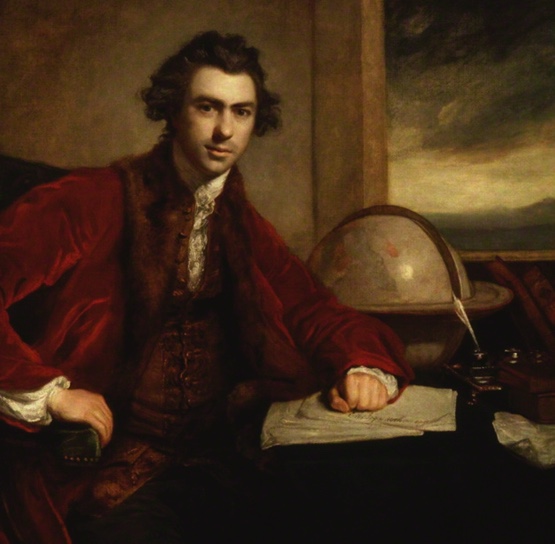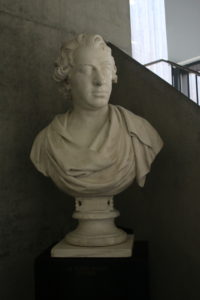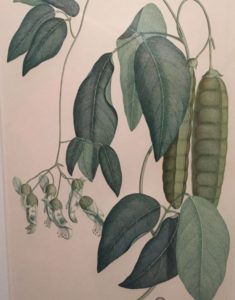Perhaps the most influential of Britain’s many botanical explorers, Joseph Banks was born on February 24, 1743 (died 1820). He explored the world collecting plant specimens, and he led the early development of Kew Royal Botanical Gardens.

Banks was born to a wealthy and privileged family. He attended the best schools, including Eton, where he learned to love plants, specifically the wildflowers that grew around the school’s grounds. He went on to study botany at Cambridge, famously paying personally for a botany professor who could advance Banks’s knowledge. His father died when Banks was 18, leaving him in control of several estates and a large personal fortune. Rather than dallying in polite society, as many did, Banks applied his funds to his botanical explorations.
His early explorations took him to Labrador and Newfoundland, but it was his voyage with Captain Cook that earned his place in history. He accompanied Cook on his first voyage to the South Pacific, from 1768 to 1771, sailing on the Endeavour. Banks contributed 10,000 British pounds to fund the outfitting of the ship for scientific work (equal to many millions in today’s money). He sailed with Cook for three years, visiting South America, the South Pacific islands, Australia and New Zealand. He collected specimens of more than 3000 plant species, 1300 of which were new to European science. The flora of Australia was so astonishing to Banks that he named one collecting point Botany Bay (later to become famous as the location of a prison). The specimens from the voyage formed the nucleus of the botanical collection for the British Museum (those collections were later transferred to the new London Natural History Museum) (learn more about the British Museum here).

Banks had been made a member of the Royal Society before the voyage, but upon returning his status was highly elevated. He was elected president in 1778, and held that position for the next 42 years until his death. He became the scientific advisor to King George III. A particularly important royal duty for Banks was as director of what would become the Kew Royal Botanical Gardens. Banks dispatched voyages around the world to bring back living specimens for the gardens, thousands of species from across the world. He was particularly interested in plants that would be useful for economic purposes—agriculture, medicine, textiles, ornamentation. Since then, Kew has become the world’s leading botanical repository for both growing plants and for seeds preserved in cold-storage.
(Note: There seems to be some confusion about the actual date of Banks’s birth. It is stated as February 13 in several references, but this is apparently the “Old Style” of dating from British history. Other references cite the birth as occurring on February 24, the date I have used.)

References:
Encyclopedia Britannica. Sir Joseph Banks, British Naturalist. Available at: https://www.britannica.com/biography/Joseph-Banks. Accessed February 14, 2018.
Endersby, Jim. 2014. How botanical gardens helped establish the British Empire. Financial Times, July 25, 2014. Available at: https://www.ft.com/content/dcd33da0-0e69-11e4-a1ae-00144feabdc0. Accessed February 14, 2018.
Gilbert, L. A. 1966. Banks, Sir Joseph (1743-1820). Australian Dictionary of Biography, Volume 1 (MUP), 1966. Available at: http://adb.anu.edu.au/biography/banks-sir-joseph-1737. Accessed February 14, 2018.
PlantExplorers.com. Joseph Banks 1743-1820. Available at: https://www.plantexplorers.com/explorers/biographies/banks/joseph-banks-01.htm. Accessed February 14, 2018.
